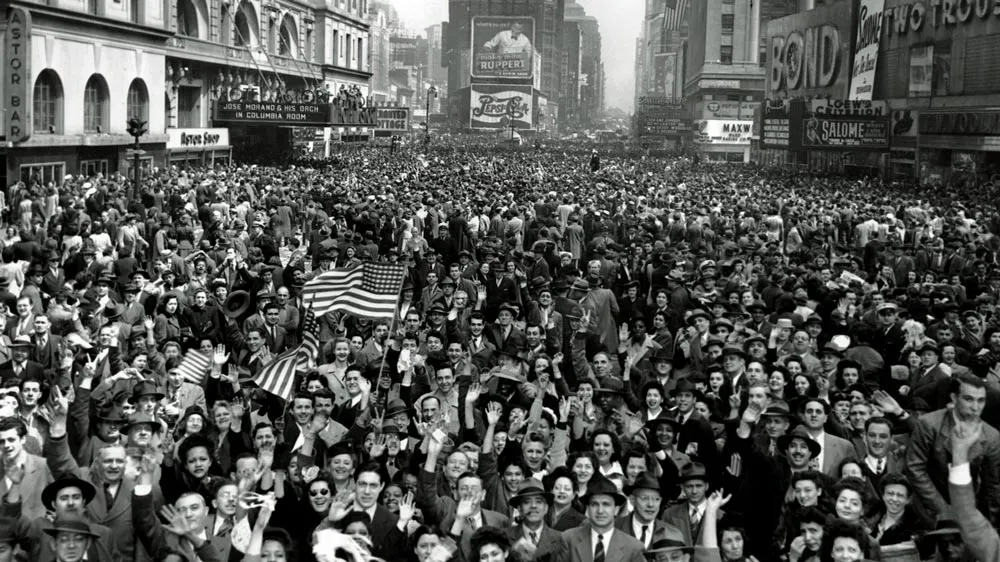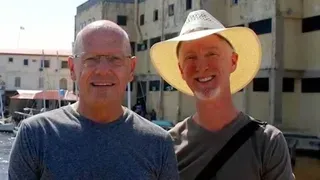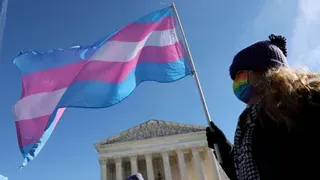January 6, 2014
Retired Episcopal Bishop Otis Charles Dies
Kilian Melloy READ TIME: 4 MIN.
The Rt. Reverend Edgar Otis Charles, a former Episcopal bishop in Utah who after retirement came out as gay and moved to San Francisco, where he was active in the marriage equality movement, died Thursday, December 26. He was 87.
Mr. Charles, who was known as Otis, died at Coming Home Hospice in San Francisco following a brief illness, said his friend and publicist David Perry. His family was at his bedside.
LGBT religious leaders mourned Mr. Charles's passing.
"The religious gay rights movement has lost one of our pioneers with Bishop Otis Charles," the Reverend Roland Stringfellow said in an email to the Bay Area Reporter.
Stringfellow, a former Bay Area resident who now lives in Detroit, is the coordinator for the Center for Lesbian and Gay Studies in Religion and Ministry based at the Pacific School of Religion in Berkeley. He said that he and others were inspired by Mr. Charles's courage and "example of an integrated life."
"He was a trailblazer by sharing his testimony to the Christian church of God's absolute acceptance for LGBT people," Stringfellow said. "While he came out later in his life, Bishop Charles proved that it is never too late to find true peace and love we all search for."
Mr. Charles had significant achievements in the religious community. He first served as a priest in Connecticut, where he was a member of the standing Liturgical Commission of the Episcopal Church, which developed the 1979 edition of the Book of Common Prayer. In the House of Bishops, he was chair of the Prayer Book Committee and a member of the Bishops' Committee on Racism. He had a doctorate of divinity degree and a doctorate of sacred theology degree.
He later served as the eighth bishop of the Episcopal Diocese of Utah from 1971 to 1993.
In 1979, Mr. Charles was one of 17 dissenting bishops when the Episcopal Church's General Convention stated that practicing homosexual clergy were prohibited from ordination - a decision that continues to generate controversy to this day. In 1999, Mr. Charles was arrested and led away in handcuffs for his civil disobedience at the church's General Convention in Denver, Colorado during a protest against what demonstrators described as the church's long history of oppression against lesbian and gay peoples.
Mr. Charles was born April 24, 1926 in Norristown, Pennsylvania. He was married for 42 years and has five children. After his retirement, Mr. Charles came out as gay, the first Christian bishop ever to take such a step. Soon after he and his wife divorced and Mr. Charles moved to San Francisco, where he helped found the California branch of the Oasis Commission, an Episcopal-based group that ministers to LGBTs.
Mr. Charles married Felipe Sanchez-Paris, Ph.D. on September 29, 2008, during the brief time it was allowed under California law before the passage of Proposition 8. That same-sex marriage ban was overturned on a technicality in June and same-sex weddings resumed in the Golden State.
Mr. Charles and Sanchez-Paris appear in the documentary film "Love Free or Die," testifying about a resolution directing the Episcopal Church to create a provisional rite for the blessing of same-gender relationships at its General Convention in Anaheim, California, in 2009.
Sanchez-Paris died July 30, 2013 at the age of 71.
Marc Andrus, the Episcopal bishop of California, praised Mr. Charles and his late partner.
"Bishop Otis Charles and his late husband, Felipe Paris, were both great friends to Sheila and me," Andrus said in an email, referring to his wife. "One of the joys of moving to the Bay Area in 2006 was being able to develop our friendship more deeply."
Andrus also said that Mr. Charles made "profound" contributions to the Episcopal Church, "having helped shape our 1979 Book of Common Prayer," a primary source of the denomination's theology and doctrine.
"Bishop Otis also changed history, beyond the borders of the Episcopal Church, by his life as an openly gay man, following his retirement from his last full-time position in the church," Andrus added.
Locally, Mr. Charles continued to speak out on LGBT and spirituality issues in his retirement. In December 2011, shortly before Christmas, the bishop and two other LGBT religious leaders, Stringfellow and the Reverend Jane Spahr, were disinvited from appearing at Most Holy Redeemer Catholic Church in the Castro. The trio had been expected to take part in the church's Advent vesper series.
George Niederauer, San Francisco's archbishop at the time, made the decision because he felt the vespers should better reflect the theme of Advent.
While Mr. Charles said he was disappointed, he was not surprised.
"Unfortunately, it is not uncommon for the Roman Catholic hierarchy to denigrate, subtly and not so subtly, LGBT people and those who stand with them," Mr. Charles told the B.A.R. at the time. "The sad fact of this disrespect for the dignity of every human being is the apparent message it sends: Silence, invisibility, and even duplicity are valued as life choices."
Andrus said that while he and his wife mourn the loss of Mr. Charles, "we feel great gratitude for his example as a Christian -- creative, compassionate, and courageous."
Mr. Charles is survived by his first spouse, five children, 10 grandchildren, four great-grandchildren, four children of Sanchez-Paris, and his San Francisco family.
Kilian Melloy serves as EDGE Media Network's Associate Arts Editor and Staff Contributor. His professional memberships include the National Lesbian & Gay Journalists Association, the Boston Online Film Critics Association, The Gay and Lesbian Entertainment Critics Association, and the Boston Theater Critics Association's Elliot Norton Awards Committee.






